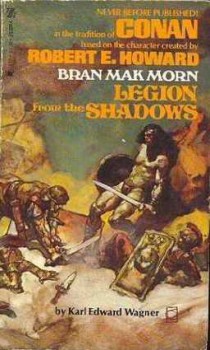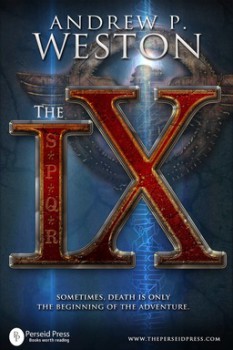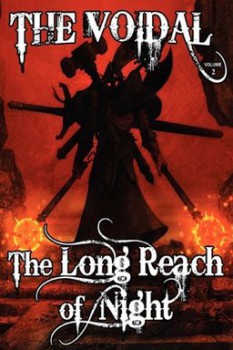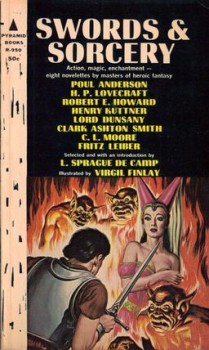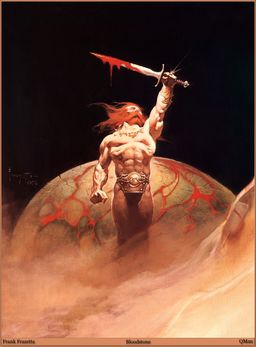Metal on Metal: Swords of Steel edited by D.M. Ritzlin
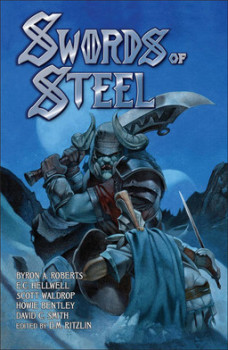 When John O’Neill posted a few weeks ago about Swords of Steel, edited by D.M. Ritzlin, I knew I had to read it. The hook was simple: swords & sorcery stories written by members of metal bands. Tons of heavy bands — Uriah Heep, Iron Maiden, Manowar, Metallica, Megadeth, to name several — have drawn on the themes of heroism, monster-fighting, and sorcery for lyrics and look. Sometimes they lift stuff directly from favorite authors, like the UK band called Conan, or Texas band The Sword with the song “Beyond the Black River.”
When John O’Neill posted a few weeks ago about Swords of Steel, edited by D.M. Ritzlin, I knew I had to read it. The hook was simple: swords & sorcery stories written by members of metal bands. Tons of heavy bands — Uriah Heep, Iron Maiden, Manowar, Metallica, Megadeth, to name several — have drawn on the themes of heroism, monster-fighting, and sorcery for lyrics and look. Sometimes they lift stuff directly from favorite authors, like the UK band called Conan, or Texas band The Sword with the song “Beyond the Black River.”
When I read Tolkien I hear folk music in my head; when I read Karl Edward Wagner I hear Black Sabbath. So although I recognized the name of only one band represented in the collection, I was stoked to dive in. With an amazingly cool cover by Martin Hanford and its back cover claim that it’s “NOT FOR WIMPS!,” I was expecting great things from Swords of Steel. It came tantalizingly close.
Set in England during the reign of Elizabeth I,”Into the Dawn of Storms” by Byron A. Roberts (vocalist, Bal-Sagoth) gets the book off to a solid start. Captain Blackthorne is plagued with dreams of death and magic and seeks help from the legend-shrouded scholar, John Dee. It’s billed as the first chapter in an ongoing saga and I’ll be keeping my eyes open for Chapter Two.
From the author bio (and there’s a nice one included for everybody), I learned that Roberts has developed a mulitverse that forms the foundation of his band’s music. This story, with references to past exploits and multiple worlds, is set there as well.
“The Riddle Master” by Ernest Cunningham Hellwell (bassist, Hellwell) is one of the best stories in the collection but, sadly, not S&S at all. A nameless writer narrates his run-in and bet with a demon, made to ensure eternal fame.

